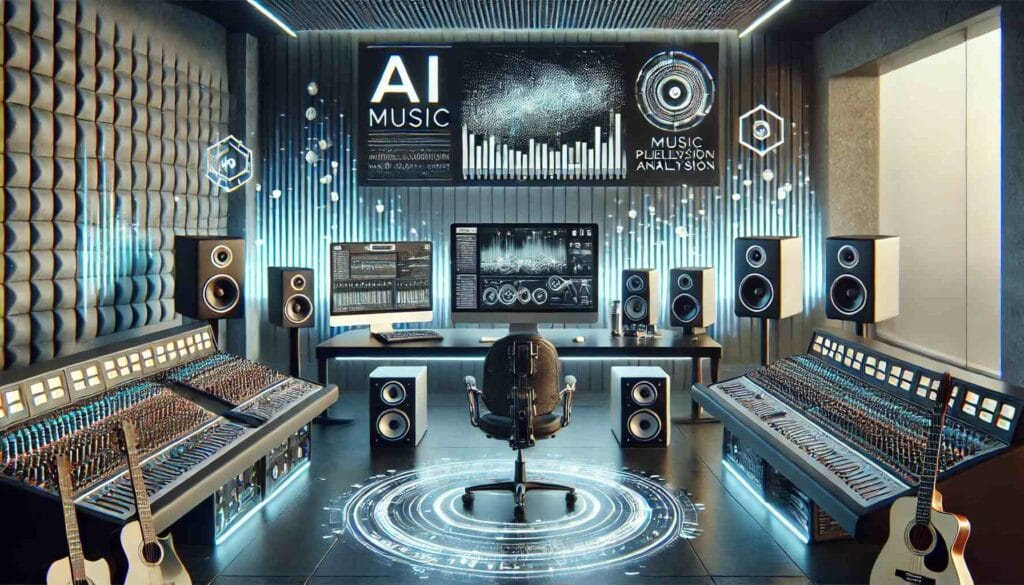The Role of Artificial Intelligence in the Music Industry for Preventing Artistic Plagiarism

In recent years, the intersection of artificial intelligence (AI) and the music industry has sparked significant discussions about its potential impact on creativity, copyright enforcement, and artistic integrity. One of the key areas where AI is making strides is in the prevention of artistic plagiarism, a pressing issue that has long plagued the music world.
Understanding Artistic Plagiarism in Music
Artistic plagiarism in music refers to the act of copying or closely imitating another artist’s work without permission or attribution. This can manifest as directly lifting melodies, lyrics, or entire compositions, or through more subtle forms such as sampling without crediting the original source. Plagiarism in music not only undermines the originality of an artist’s work but also infringes on intellectual property rights, potentially resulting in legal battles and loss of reputation.
Historically, identifying and prosecuting music plagiarism has been a complex and time-consuming task. Copyright laws, while providing protection, often require intricate comparisons and expert testimonies to determine whether plagiarism has occurred. However, the rise of AI has introduced new, more efficient methods for detecting and preventing these infringements.
How AI Helps Detect Music Plagiarism
- Automated Music Recognition Algorithms AI systems can analyze vast amounts of music data to detect similarities between different tracks. Using machine learning, these algorithms can be trained to recognize patterns in melodies, harmonies, and rhythms. By comparing new compositions to existing music databases, AI can pinpoint potential instances of plagiarism.Technologies like acoustic fingerprinting and music identification services (e.g., Shazam) use these methods to match songs with a high degree of accuracy. These systems not only detect direct copies but can also identify derivative works that may have been altered to avoid detection.
- AI-Powered Copyright Protection Tools AI has facilitated the development of advanced copyright protection tools. Music streaming platforms and content creators are increasingly adopting AI systems to monitor and protect their works. For instance, platforms like YouTube use AI to detect and block copyrighted content through Content ID systems, which scan videos for unauthorized use of music. These systems help ensure that creators are compensated for the use of their intellectual property.
- Generative AI for Plagiarism Prevention AI is also capable of generating unique compositions, helping artists avoid unintentional plagiarism. By using generative models, AI tools can assist musicians in composing original music by suggesting new melodies, chord progressions, and lyrics that are unlikely to resemble existing works. These tools reduce the risk of artists inadvertently creating music that is too similar to previously released songs, promoting creativity and originality.
Ethical Considerations and Challenges
While AI offers powerful tools for preventing plagiarism, its use in the music industry raises important ethical questions. One concern is the balance between protecting intellectual property and fostering creativity. AI-driven systems may inadvertently stifle innovation by being overly rigid in their detection methods, potentially labeling a song as plagiarized when it is simply inspired by existing works.
Moreover, as AI algorithms become more sophisticated, there is a risk that some creators might use them to game the system—producing music that appears original on the surface but closely mimics successful formulas without proper attribution. This could lead to the commodification of music, where algorithmically generated tracks replace human creativity.
The Future of AI and Music Plagiarism Prevention
The future of AI in the music industry looks promising, with ongoing developments aimed at improving the accuracy and fairness of plagiarism detection. As AI continues to evolve, it may become an even more integral part of the creative process, helping artists maintain their authenticity while also safeguarding their rights.
In addition to plagiarism prevention, AI can be used to assist in the creation of new forms of music that challenge traditional concepts of originality. This could lead to a more dynamic and diverse music landscape, where artists can explore new ideas without fear of being accused of copying.
Conclusion
AI is reshaping the music industry in many ways, and one of its most significant contributions is in preventing artistic plagiarism. By leveraging advanced algorithms and machine learning models, AI offers a more efficient and effective way to protect the rights of creators and maintain the integrity of artistic works. However, as the technology advances, it is crucial to ensure that ethical considerations are taken into account to strike a balance between protection and creativity. In the end, AI has the potential to enhance the music industry, empowering artists to produce original works while safeguarding their intellectual property.
Source : Medium.com




